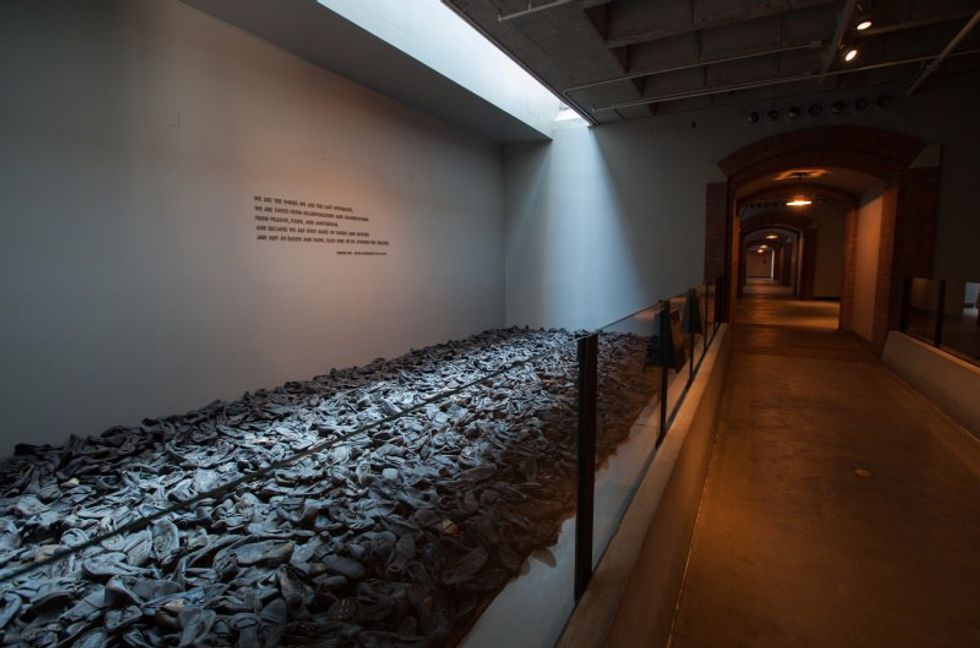"What have you done? Hark, thy brother’s blood cries out to me from the ground!" - Genesis 4:10, as quoted by the United States Holocaust Museum
While my girlfriend and I were on vacation in Washington, D.C., this past week, she took me to the United States Holocaust Museum. She had visited it before, during a trip to D.C. in the eighth grade. I had never been there. Instead, my eighth-grade class read "Night" by Elie Wiesel and watched "Schindler's List."
I thought I knew how terrible the Holocaust had been. But no film can do what the museum can do, just as the museum can never fully capture the scope of the atrocity. We spent three hours in the museum, and even then we didn't manage to give our full attention to every exhibit. There is simply too much terribleness to process:
Sections of walls from the ghettos;
Drawings by children who lived in those ghettos. Very few captions include the word "survived;"
Video of the human experiments carried out by the doctors in the concentration camps. The doctors kept severed limbs and headless corpses in liquid to preserve them;
A two-story-tall area filled with photographs taken in a Russian Jewish village before the Holocaust. Children playing in the snow. Teenagers flirting. Families posing. There are no Jews left in that town now;
The shoes.
As we watched segments of film about the rise of the Nazis, my horror was compounded by the realization that their climb sounded familiar. A historical distrust of outsiders exaggerated by those who wanted power. The ignorance of those who weren't Nazis -- many people believed that Hitler could be given power because he would be kept in check by more reasonable people. The inaction of those reasonable people.
The Holocaust museum presents two responsibilities to its visitors: memory and action. We can't forget. We can't, our children can't, their children can't. This is not solely out of duty to those who died, however. Remembering the Holocaust is supposed to lead to action. Violence like the Holocaust is not a one-time thing--evil belongs to all of humanity, not just Hitler.
Another quote in the Holocaust museum, from Deuteronomy, reads, "I call heaven and earth to witness this day: I have put before you life and death, blessing and curse. Choose life — that you and your offspring shall live."
That is the choice that history places in front of us. As long as racism exists, as homophobia and transphobia exist, as hatred of immigrants exists, the potential for another catastrophic act of evil exists. Our hatred and fear of those who are different from us inevitably leads to violence. Look at the Pulse shooting and the voices of hatred that followed it. At attacks on protesters at Trump rallies. At the resurgence of antisemitism in Europe.
The Holocaust museum is a living memorial. Our actions in our own time will either prevent similar evils or promote them.




















